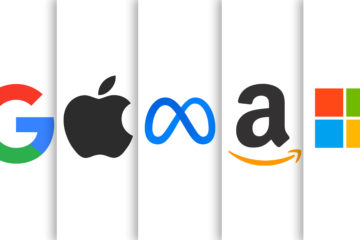The Market Institute President Charles Sauer has a new piece in the Washington Examiner looking at anti-trust enforcement.
“While the political and policy divide between the Biden administration and the Trump administration is vast, there are also some policies that unite them. These areas of agreement could spell disaster for innovation.
For example, the two administrations agree on the populist idea that big companies are evil and need to be reined in by the government. The messaging from former President Donald Trump was clear, and Biden’s team might be even more direct. They are going after Big Tech, Big Pharma, and even Big Beer.
One of the primary tools that both the Trump and Biden administrations looked to employ is the use of antitrust laws. But antitrust attacks were a bad idea under the Trump administration, and they are a bad idea under the Biden administration. It isn’t that big companies are necessarily good. But attacking them doesn’t solve the problem, and using antitrust laws can actually make the problem worse.
Antitrust enforcement is more harmful to the economy than good, and it has a chilling effect on innovation and new business creation.
Antitrust advocates claim that big businesses are bad for consumers and restrict competition. Interestingly, they seem to be serious about this, or at least can keep a straight face while making these claims. But their justifications are lacking, and their results have been comical.
For instance, when the European Union went after the fact that Google was the default search engine on the Android operating system (Google’s own operating system), the EU prevailed in the case but failed in its goals. The result was that users are now presented with a choice, but manufacturers have to pay to license the operating system. And Google’s share of search traffic hasn’t changed.
The reason is simple: Google has a good product. There are plenty of other choices available for search engines, including big players such as Bing and Yahoo and smaller search engines such as DuckDuckGo. But, Google’s search results are just better. The reason that big companies are big is that they can reliably provide quality products that people want — and at good prices. Regulations don’t change that.
This isn’t just about Google, though. It is just one of the companies that have been targeted, and even companies that aren’t currently under the magnifying glass are already starting to act based on the fear of being next, instead of continuing to innovate at the same rate.
When a big company is broken up, or the oversight of its acquisitions is changed — Amazon, Google, Facebook, and a myriad of others have been mentioned — it does more than just hurt that company. It hurts all of the small companies that were looking to be bought by the larger company. It reduces the possible exits that start-ups have and therefore makes them less valuable. Less value means less investment. Less investment means less likelihood of success and fewer people taking risks.
Antitrust expansion and enforcement have a dramatic chilling effect on the small guys.”
For the full article and more on the Anti-trust issue head over to the Examiner by clicking here.


